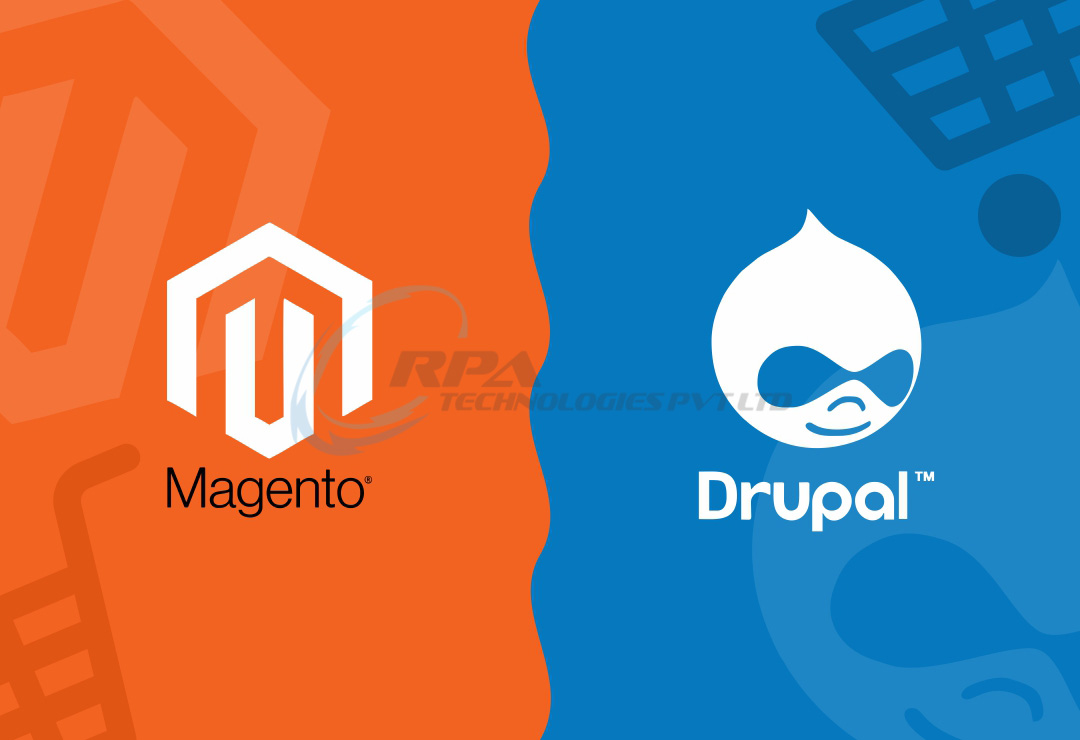Magento Vs Drupal: The Apt E-commerce Web Development Platform?
It is no doubt that one of the toughest parts in setting up an e-commerce business is selection of the appropriate ecommerce web development platform for your online store. There is a huge choice of development platforms available out there, which means you can definitely get mistaken in choice.
There are several factors and parameters to be considered during the comparison and selection of the suitable one which can fulfill your needs. Magento and Drupal are two most preferred e-commerce web development platforms that are emerging as winners. Both are equipped with ample features and offerings, the selection between these 2 can lead to confusion but everything should be according to specific requirements and budget.
Here’s a comprehensive comparison between these two platforms on the basis of technical capability, scalability, interoperability, development/maintenance costs and more.
Suitability
The primitive cause of this comparison is deciding the platform which works best for online store; suitability comes as the first parameter. Here, it’s important to understand the functional and structural basics of the platforms.
Magento is a platform designed for e-commerce having all the necessary development features that’s needed for a fully-functional online store. Here you can use it to develop a functional store selling traditional products based on retail and wholesale business models. Also, you can create the store selling digital products. Features like handing the product catalog on storefront, managing administration at backend makes Magento fully capable in handing the entire aspects.
Drupal was primarily designed as a content publication and management platform, which made it great choice for blogs, forums, news, e-books, social content, and more. But, Drupal commerce has been designed by keeping e-commerce functionality in mind. It’s suitable for stores selling non-traditional products like subscription type content not involving complex category systems and vivid product groups.
Operability
The second factor most important factor is the operability with the host CMS.
Magento operates like a third-party system that can be wired into any CMS for displaying inventory, also can be deployed for sole installation as well. The non-present native host CMS makes it a flexible inventory framework that’s easily manageable through extensive GUI-driven customizability since it self-accommodates itself to different hosts’ environments.
Drupal intends to add e-commerce capabilities to the CMS, herby making it easy to integrate e-commerce platform having content channels. Moreover, it brings significant flexibility and configurability on how everything is displayed to audiences.
Scalability
This factor determines the capability of the store to align with increasing product catalog and traffic volume.
Magento offers the advantage of high scalability and opting Magento 2, can provide you with considerable enhancements in scalability and performance. It means that your online business have the advantage of excellent user experiences despite traffic loads and its future-proof so you can extend the product range with business growth.
Drupal has smaller footprints, but it has the capability of rendering highly performance scale. Although database sharing solution is not available here, it can be implemented on a third-party basis. It also means that Drupal will not fail on the scalability and performance fronts.
Online Resources & Learning Curve
In e-commerce development platform, one can’t ignore ease of learning, understanding and using it.
Magento is a framework requiring advanced PHP skills. You will surely require hiring professional ecommerce web development company to develop, customize, and maintain your store. But expense worth, since you will have a store that’s easy to manage from the admin end. And since it is open-source, you can have plenty of online help and documentation from a large community.
Drupal Commerce also provides online help is available as a forum where you can put across your queries to the Drupal community and technical support channel. The platform also comes with a queued ticketing system, which you can check out for reliable support from the expert Drupal developers themselves.
Headless e-commerce
Another perspective is the compatibility for headless e-commerce.
Magento enables UX-friendly and fast-performing online stores through PWA Studio, which is a suite of PWA development tools facilitating the creation of Progressive Web Apps.
Drupal brings a decoupled, API-driven implementation which makes functionality easy to available across variety of host environments tending towards a platform-agnostic, SaaS-oriented solution.
Conclusion
Since it’s easy to understand how these e-commerce platforms vary, you can decide the one that works for you. But during the selection keep your specific business requirements and customer expectation in mind. The goal here is prioritizing a platform suitable to works on both perspectives - business as well as customers. Additionally, it should be fit within your budget also. Once you make the choice, partnering with professional ecommerce web development company is the next step.
RPA Technologies is a leading e-commerce development company which specializes in creating online stores of diverse sizes and types. We are pioneers in both Magento and Drupal Commerce platforms and help you choose the one which is absolutely right for you. Contact us and we create a strategic road map for your e-commerce business.








Comments